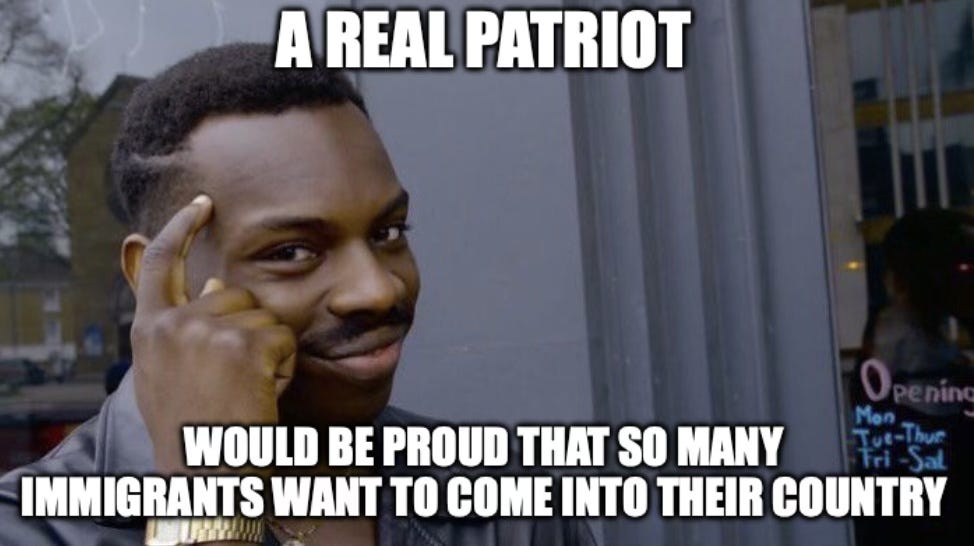As I spend what sporadic time I do online, I end up seeing things I assume are trends, since they crop up repeatedly despite my absence from the social media world for days on end. Or sometimes weeks—this time of year is tough for me in terms of caring enough to go to the usual haunts and peruse.
The posting behavior that’s striking me as less-than-productive of late has to do with people who I know to otherwise be bright, contemplative folks resorting to dumping a meme into their feed as a commentary on an incredibly nuanced cultural/political problem. I hear you saying that my first mistake was hoping for productive behavior online, but stay with me.
Here in the U.S., we have a few topics that rotate through the public discourse, and some have been exacerbated by news items. Violence as a means to institutional change has been one stirred up by a recent CEO assassination. We always have debates flaming up about immigration, the policies at our borders, and our duties toward those who enter the country by illegal means. Political parties, the electoral college, and taxpayer funded entitlements spend plenty of time on the soapbox too.
But some people have decided their way to weigh in on big problems is to boil it down to a single meme. As if one, “well, duh” choice would open everyone’s eyes to the solution.
I get posting such a thing as a joke. If you do so, I strongly encourage you to be the first commenter to clarify for the easily-ruffled world that of course you’re kidding.
The problem is, so many people AREN’T posting these single panel mic drops as jokes. They will argue in a string of hundreds of comments why their meme is true. But here’s the thing. A meme can have truth to it and still be unhelpful. It’s as if someone can say “There’s a famine in x country,” and the answer is “Duh, take food to them.” As if the way the real world works allows for the “well, duh,” solution.
Unfortunately, a lot of these meme posts come from one side of the socio-political spectrum or the other, so the oversimplified solution gets dropped on top of a premise that’s already a skewed representation of the problem. “If you didn’t believe this thing I think is stupid, this extremely nuanced problem that I’ve misrepresented would be solved” is the underlying theme to this breed of post. What makes them even “better” is when people try to play the “This is what God thinks about it” card at the same time.
Villains and heroes are great for epic stories, but rarely does casting any one person, concept, or solution as either accomplish anything. That’s because a villain is a fictional representation of a concept. It’s a way to shorthand reasons for a consumer of the narrative to buy in quickly. When people erect heroes and villains in real life scenarios, the only honest reason to do so is in order to manipulate.
There’s been a word for this for a long, long time. Propaganda.
The other thing about villains and heroes is that you can’t stamp the identity onto a group. The moment a population gets declared one or the other, the conversation loses meaning, and thus the way to solve the problem vanishes with it.
So as you scroll through memes the next time you’re on your platform of choice and might be tempted to repost one, for the love of humanity, I hope you’re doing so tongue-in-cheek. Or better yet, just post cute animal pictures or about stuff actually going on in your own life. At the risk of sounding like a political figure I call neither hero nor villain, “Make social media social again.” Leave the complicated political discourse for dinner conversation. ;)
Or start drawing political cartoons, perhaps—they have a bit more nuance and symbolism involved, but that makes them incredibly ill-suited to the social media space, now doesn’t it?





I'm very tempted to comment with a meme saying, in effect, "Don't reduce complex ideas to memes. Duh."
But alas, Substack's comments feature doesn't support images.
Thanks for the spot-on article!